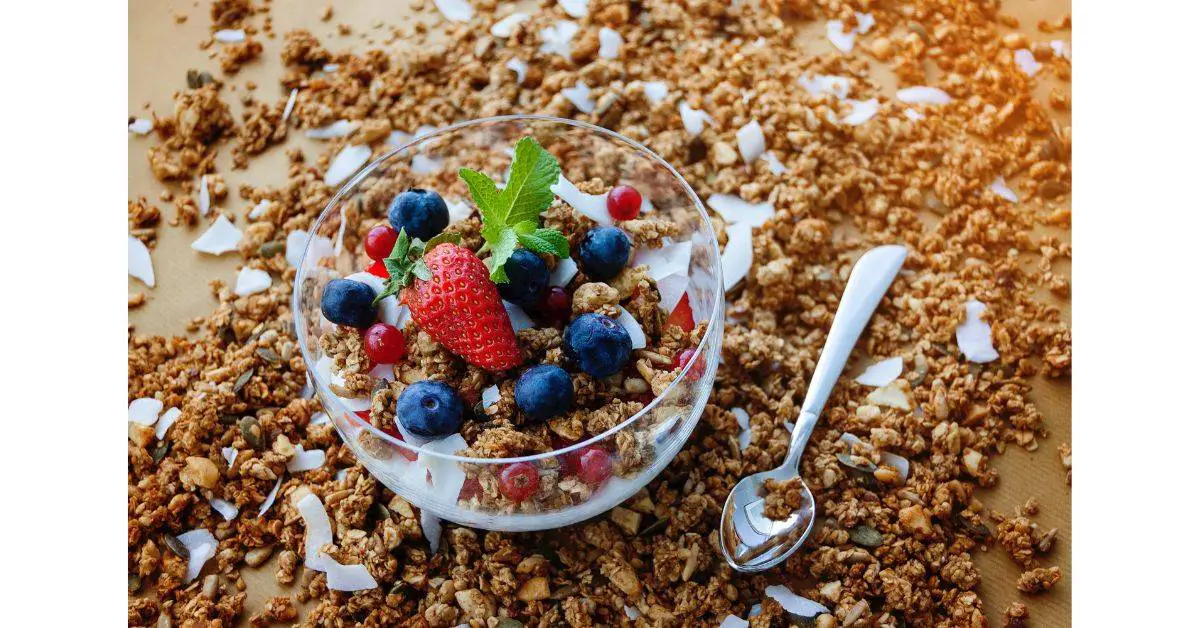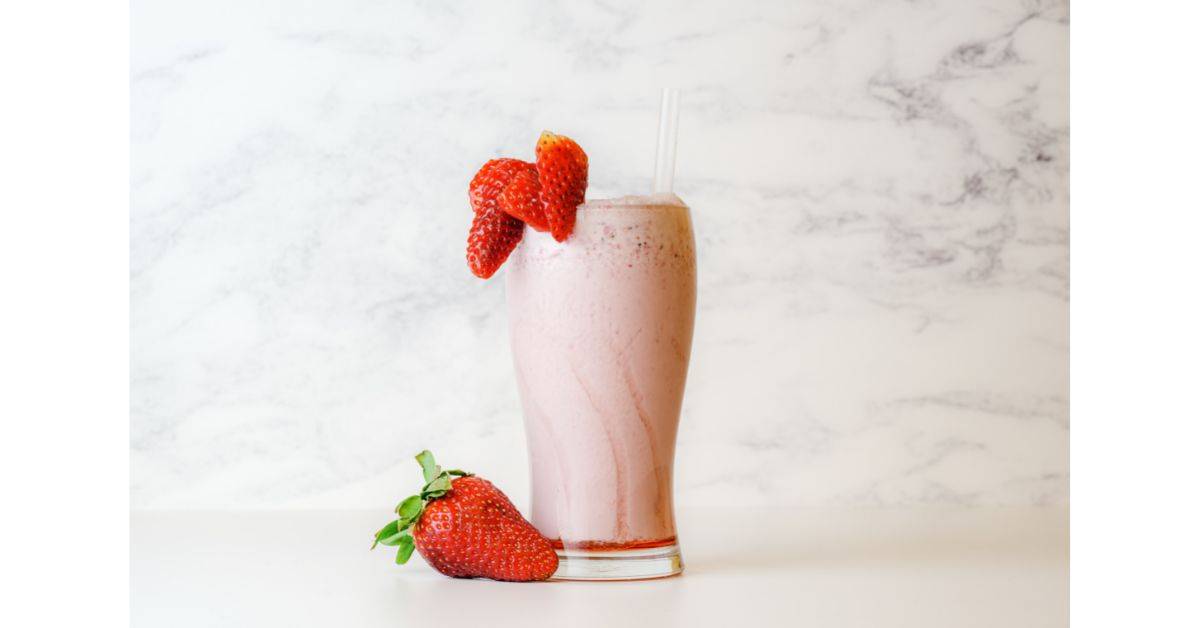To stay in top shape, your body needs to recover and replace the nutrients it lost after a boxing workout. Boxers know that the correct post-workout food will aid in a quicker recovery and better muscular growth. Giving your muscles protein so, so they can mend, is a significant element of this recovery.
After boxing, you should jump-start your recovery process by consuming about 25 to 30 grams of protein. For your body to use the protein most efficiently, post-workout meals should have a lot of protein and a healthy ratio of carbs to fats. A healthy meal ensures your body has the finest recovery.
Some examples of the finest post-boxing meals that strike this balance include:
- Greek yogurt with almonds or fresh fruit
- Scrambled eggs and whole-grain bread
- Wrap with chicken, tuna, or turkey
- Rice, stir-fry with lean meat or tofu
- Lean beef tacos with guacamole
A complete protein smoothie is another fantastic choice for what to eat after boxing practice. Protein shakes provide your body with all the nutrition it needs in one serving. Using protein drinks while working out on the go might save you time.
Boxers shouldn’t skip meals when training, so if you don’t have time to make a substantial post-workout meal, it’s a smart idea to have a protein drink on hand.
The foundation of a healthy lifestyle is good nutrition. It is also the cornerstone of boxers’ success in the ring and getting the most out of their training. Your post-workout diet will let you return to the bag each time stronger.
In accordance to this article, if you want to read another guide I wrote about what you should eat prior to your boxing workout, follow the link.
What should I eat after boxing for weight loss?
After a sweaty boxing class for weight loss, it’s critical to recharge quickly with foods high in nutrients. Your muscles will heal faster, allowing you to strike the bag again without experiencing too much pain. Following your workout, it’s crucial to feed your body to replace all the energy reserves you lost during box training.
A boxer boxing for weight loss diet should be rich in carbs, low in fat, and rich in protein. Adding proteins and carbs to your diet helps maintain a lean muscle mass. Grab a high-carb, high-protein snack or meal within 30 to 60 minutes after your workout to fill up your body’s energy supplies.
Proteins most especially help in physical recovery and promote the growth of lean muscular tissue. Protein is particularly beneficial after exercise.
Additionally, you require carbohydrates because they are your body’s primary energy source. You use up a significant portion of your energy source after a challenging workout, so you’ll need to eat lots of healthy carbs to replenish those nutrients.
What should I eat after boxing to gain muscle?
Eating after your boxing workout will help your body recover more quickly and give you energy for your second-day session. Some foods are preferable to others. These nutrients should ideally digest soon, so the muscles can use them as fuel. Lean protein and sweet carbohydrate sources are foods that digest quickly.
According to a study, consuming protein plus carbohydrates after boxing may increase muscle protein, building new proteins. It’s important to remember that carbohydrates must break down quickly. Add more protein food and carbs to your diet after boxing to gain muscles. Make a healthy drink you could sip after training.

For example, it can be a sports drink you could sip while working out. Dextrose or maltodextrin powder are options that are quite affordable. Since they lack flavor, you can combine them with something flavorful or sweeten them.
Examples of meals you should eat after boxing
You cause minor muscle rips while exercising. Muscle injury is another name for the minor tears that occur to your muscle fibers. Increased muscle mass is the outcome of activated satellite cells joining forces to repair the damage to rebuild and recover. This procedure, known as muscle protein synthesis, is how your muscles develop.
Because amino acids, the building blocks of protein, are essential to the healing process, a boxer’s diet must include a proper amount of protein, especially after boxing training. Despite not directly impacting muscle regeneration, carbohydrates are crucial for replenishing the body’s glycogen stores after a workout.
Most people think the post-exercise window to replace protein and nutrients depleted following a workout is only 30 minutes. According to some studies, recent research has demonstrated that our muscles may properly repair and regenerate after exercise for up to three (3) hours.
It all boils down to protein and carbohydrates if you want to gain muscle or tone up – how quickly and in what proportions you eat them will depend on your goals. Your body uses stored glycogen first during exercise before turning to any pre-workout food for energy.
Following your workout, you need to restore those nutrients and provide your muscles with protein to begin the repair process. Consider carbohydrates as the fuel for your vehicle; after a workout, refueling gives the body what it needs to use the protein you just consumed to build muscle.
Make sure to eat both protein and carbohydrates, along with enough water and other fluids to replace electrolytes lost through sweat, whether you have a post-workout snack or a full meal.
Listed below includes but are not limited to are examples of meals you should eat after boxing
#1. Fruits and Greek yogurt
Greek yogurt is wonderfully creamy and tasty and includes almost twice as much protein as regular yogurt. It also contains the appropriate number of carbohydrates, enabling you to achieve both objectives with a single dish. You can use this with fresh fruit, such as raspberries, to add more carbohydrates and a boost of vitamins that may help reduce muscular discomfort.

#2. Sandwich wraps
The nicest aspect about wraps is that they are portable and offer a great combination of carbohydrates and protein. For those with busy schedules, this post-workout snack is ideal. If you exercise during your lunch break, pack a wrap and something to eat on the way back to work.
Your vegetables and the wrap provide the necessary carbohydrates, and you can add turkey, chicken, tuna, bacon, or any other protein of your choice to meet your protein requirements.
#3. Oats and Fresh Fruit Protein Shakes
For many people, this is the simplest and most accessible alternative. Since a lot of protein is present in a form our bodies can easily digest, you can repair the muscle fibers quickly. You create a great shake by combining Greek yogurt and protein powder for the protein, fresh fruit, spinach, and even oats for the carbs.

#4. Egg scramble
Another highly flexible and protein-rich post-workout alternative is the egg scramble. Eggs are a great source of protein and may be used with nearly anything to help you reach your carbohydrate goal. For added protein, try scrambling some eggs with some ground turkey.
Add some shredded sweet potato, bell peppers, and onions for carbohydrates. If you prefer breakfast over lunch, substitute the midday wrap for one you fill with eggs and turkey sausage.
#5. Pancakes with protein
Nothing feels sweeter than a stack of pancakes in the morning, so make them protein-rich for your post-workout fix. You can do it in countless ways, including purchasing ready-made blends.
Additionally, you may find recipes for protein pancakes that use the protein powder you already have in your kitchen. You can increase your intake of micronutrients while also getting the necessary carbohydrates by adding sliced strawberries, bananas, or oatmeal.
These are just a handful of meals regarding fantastic post-workout foods. Make sure you eat within the time frame mentioned above and choose nutritious foods as a general rule of thumb!
How long after boxing should I eat?
Boxing combines cardio with strength training, making it an ideal type of workout. It’s the ultimate total-body workout, but also heavily strains your body. While exercising, your body stores energy and nutrients, but those supplies quickly diminish. So you must adapt your mealtime or workout schedule when planning a workout to leave enough time between when you eat a substantial meal and when you hit the bag.
Boxers should eat 30-60 minutes after boxing. Fighters can immediately take a healthy drink for their thirst and, 45-60 minutes after, consume a protein shake a milkshake. 2 hours after, take fresh pineapple juice or eat a fistful of protein, two fistfuls of carbs (such as rice or pasta), and a fistful of veggies.
The body needs rest and refueling after a boxing workout. A boxer’s body and muscles will recover more quickly and effectively if they eat properly after a session. After 30-60 minutes, the body has adequate time to start the digestive process.
After you’ve finished working out, refuel your body to replace the energy you expend throughout your activity. Fill up on meat and grains.
Protein is especially beneficial after exercise, since it aids in the growth and repair of lean muscle mass. Carbohydrates are essential because they provide your body with its preferred energy source.
Some wonderful post-workout snacks you can take are:
- On whole-wheat bread, your choice of tuna or deli meat
- Nuts and seeds of varying varieties (almonds, cashews, flax seeds, etc.)
- Milk, either skim or chocolate, to drink
- Raw-nut-and-fruit-and-low-sugar-yogurt smoothie.
- Crackers with cheese and a healthy grain
- Protein shakes with low sugar content (watch out for hidden sugars!)
- Nuts and Greek yogurt
- Hard-boiled eggs
- Veggies with bean dip or hummus.
Make sure you drink a lot of water after your workout is over. It replenishes fluids lost through sweat and keeps the body at a comfortable temperature. In addition to being essential for survival, water aids in the distribution of nutrients throughout the body, speeding up the healing time after exercise, and reducing the risk of cramping.
If you find it hard to drink enough water every day, consider mixing in some 100% juice. As it supplements, your diet replenishes your glucose levels by providing additional nutritious carbohydrates. Alternatively, add a packet of electrolyte booster to your water to give it a little more kick. This process is useful for restoring depleted salt levels after exercise.
What foods should I avoid after boxing?
Boxers need healthy fats to support vital internal processes like cell growth, energy production, absorption of vitamins and minerals, and more. Unsaturated fats, sometimes referred to as polyunsaturated and monounsaturated fats, are typically healthy fats.
However, you should avoid saturated fats, which you can find in meats like hog, fatty cattle, lamb, skinless chicken, lard, and dairy products like butter, cream, and cheese. These are bad fats that you should avoid. Fast food and junk food are likewise high in saturated fats; thus, I recommend you stay away from them.

You can also stay away from the few foods mentioned below if you wish to recuperate well after boxing:
- Fast food and pre-packaged goods include bad fats that are hard to digest.
- Chocolate, candies, soft drinks, cakes, and juices all contain quick-acting sugars.
- Sour and acidic foods
- Spicy foods
- Drinking alcohol that dehydrates you.
- Fruits, including pineapple, dates, chestnuts, raisins, melon, and watermelon, have a high glycemic index.
Avoid consuming dietary supplements at all costs. Healthy cuisine has everything you require. Energy snacks can be consumed sometimes during exercise when you lose sodium and get thirsty as a result, but avoid doing so on a regular basis.
You can eat Omega-3 and omega-6 fatty acids. They promote strong bones, joints, and mental wellness; olives, olive oil, seafood, and nuts (such as walnuts, cashews, and almonds).
You can regard coconut, avocado, and seeds—especially flax seed- as one of the best omega fats—as well as organic oils like macadamia oil, canola oil, or coconut oil are all excellent sources of omega fatty acids. You can increase your intake of omega-3 and omega-6 fatty acids by taking flax oil or fish oil supplements.
Final words
What constitutes a healthy post-workout snack or meal will vary from person to person; there is no universal formula for this. The trick is to keep your kitchen stocked with a wide variety of nutrient-dense foods you love eating, satisfy your hunger, and provide your body with the energy it requires.
Prepare for the inevitable hunger pangs by stocking up on healthy foods like whole grains, fruits, vegetables, fiber, healthy fats, and lean protein. These foods will help you feel full and satiated in the long run. They are a potent addition to your next round of boxing training.
If you enjoyed reading this article, you’ll also enjoy reading about whether you can do boxing if you’re overweight.
Resources
- Mayo clinic. [ https://www.mayoclinic.org/healthy-lifestyle/fitness/in-depth/exercise/art-20045506 ]
- Heart.org. Food as Fuel Before, During, and After Workouts [ https://www.heart.org/en/healthy-living/healthy-eating/eat-smart/nutrition-basics/food-as-fuel-before-during-and-after-workouts ]
- National Library of Medicine. Nutrient timing revisited: is there a post-exercise anabolic window? Alan Albert Aragon1 and Brad Jon Schoenfeldcorresponding author2 [ https://www.ncbi.nlm.nih.gov/pmc/articles/PMC3577439/ ]
- International Society of Sports Nutrition position stand: Nutrient timing [ https://jissn.biomedcentral.com/articles/10.1186/1550-2783-5-17 ]
- Cambridge University Press.The science of muscle hypertrophy: making dietary protein count [ https://www.cambridge.org/core/journals/proceedings-of-the-nutrition-society/article/science-of-muscle-hypertrophy-making-dietary-protein-count/F0E5C7D9AA3C5385287C806EE504E18E ]
- International Society of Sports Nutrition position stand: Nutrient timing [ https://jissn.biomedcentral.com/articles/10.1186/1550-2783-5-17 ]

